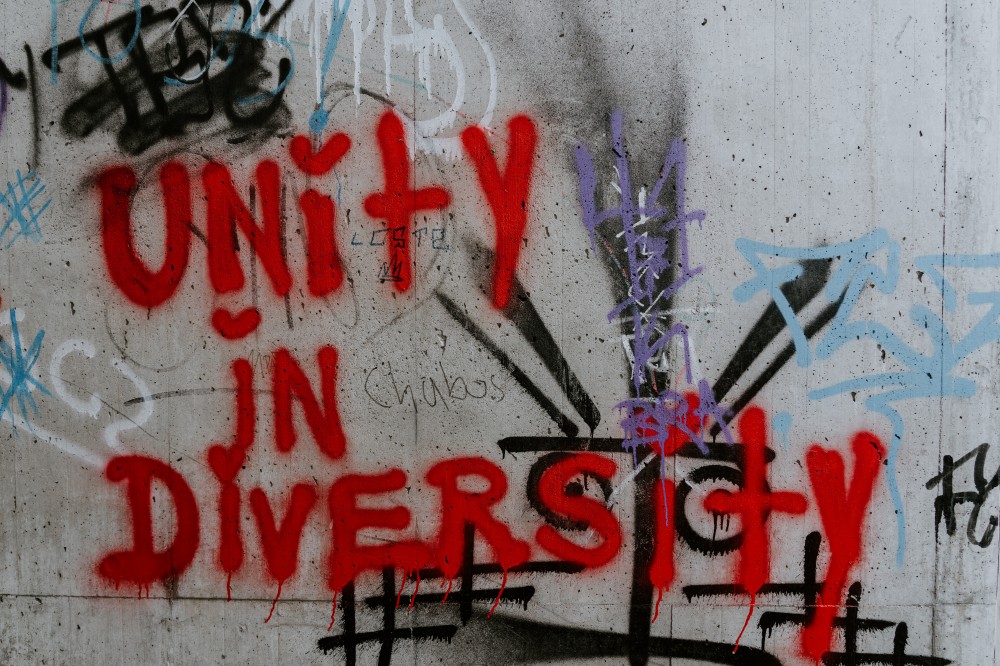Diversity, Equity, and Inclusion – One Persons Opinion
October 24th, 2022
In post-Civil War America there were a number of reparations that were given to former slaves, in terms of land or money. Some of those reparations stuck but others were overturned. One can look back at affirmative action and the 1978 Supreme Court Case: Regents of the University of California v. Allan Bakke, where the court upheld the idea and policy of affirmative action, it allowed race to continue to be used as a factor in college admission acceptance but struck down the use of quotas. Honestly, we could spend this entire blog just doing a historical review of how we got to this place but that is not the purpose of todays’ ramblings.
Like many, this is a topic that I struggle with. Not with the concept but the application of the concept. Far too many people talk about DEI but don’t put it into practice. Perhaps being Jewish and growing up in the Midwest has made me somewhat sensitive to the topics like racism and Anti-Semitism. More than once, growing up, I had to respond to the question of why “my people” had killed Jesus or explain why I wasn’t in school when the Jewish High Holidays were in the middle of the week. In grade school I was on the wrestling team, and it was clear the difference in how monies were spent on the school buildings in the poorer, predominantly black sections of town as opposed to those sections, including my own, that were almost exclusively white. Our gym was relatively new with nice locker rooms and a beautiful gym floor. One school we went to was dingy with a gym floor that creaked when you stepped on it and had a drain right in the middle of it. Even though that was 50 years ago, I remember it vividly.
As I said, my struggle is that many people talk the talk but don’t walk the walk. Schools, organizations, and businesses have taken up the practice of Land Acknowledgements. Where they identify the Native American tribes whose land their building or conference is on. Yet, other than acknowledging it, they don’t do anything more. There are no scholarships or food drives organized to help the poor or impoverished members of those tribes who are left. No offers to go to the reservations to provide help in clean up, building repair, or medical outreach. Somehow acknowledging the land that was stolen from these people is enough.
Frankly, for many the term inclusion is reserved only for those that are like minded or people that belong to a few select groups that are identified by the color of their skin, gender identity or sexual orientation. Several years ago, during the height of Trump mania several colleges and universities voted to defund their young Republican Groups. Not that these groups had done anything wrong or were planning to, but because others didn’t like their politics and wanted the groups eliminated. That doesn’t sound very inclusive to me.
Several years ago, I attended a virtual live conference, of an association that I am a member of, and they opened their conference by talking about the tribes whose land they were on. All well and good, I have no problem with land acknowledgement but then later in the event they did a Q and A with one of the keynote speakers. This speaker was from the organization Black Votes Matter, a group that mobilizes the Black community to register and get out and vote. Hard to argue with a mission like that. Her presentation was inspiring to say the least. Following the presentation was the Q and A that I mentioned. At the very beginning of the Q and A, the Chair of the Board started by saying “I just need to say snaps to you for turning the state of Georgia blue.” Did I just hear that correctly? An organization that talks about DEI at several levels and asks people that are presenting educational sessions how their session will incorporate DEI, just had their board chair make an overtly political, non-inclusive statement. For weeks, I wrestled with whether to address the matter and decided not to, for fear of repercussions. After several conversations with other members of this organization, many of whom turned off that part of the program after hearing that comment, I changed my mind and did mention it to both a member of the board and the executive director. Fairly certain those concerns fell on deaf ears. This same group just held a program on Yom Kippur, the holiest day in the Jewish calendar. One would hardly call that being particularly inclusive, diverse, or even aware.
Massachusetts has a question on the ballot in November allowing undocumented immigrants to obtain drivers licenses. It is a law or policy that several other states in the country have, and one that has been hotly debated in the Commonwealth of Massachusetts. Recently, somebody asked me if I supported it and despite knowing the persons political leanings and stance on the question, I said I was. It was not well received by the other individual.
Humans are complicated; wrought with inconsistencies and hypocrisy. All of us know people that spend money on things that we deem foolish while withholding making a monetary investment in what we consider to be prudent or essential. We frequently express views or hold beliefs that seem diametrically opposed to one another for example being pro-life but for the death penalty. Often, there is no rhyme or reason for what we say and do. I am sure that I, too, am guilty of being inclusive in some situations and exclusive in others. There is no question that I have not done enough to rebalance the power and socio-economic dynamic in this country. Yes, I have done some small things, I support a number of local, minority owned businesses. At the ballot box, I will vote for a law that gives drivers licenses to people that are undocumented. I believe it is the right thing to do and will provide them an opportunity to get to work, shuttle kids to school, and the doctor’s office while providing additional social and economic opportunities for them.
Perhaps what is most troubling about all of this is the inability for us to have open, honest, and calm discussions about the topic. Either the topic is completely avoided at the risk of offending people, or it turns into a shouting match with neither side listening to the other. Being truly inclusive means accepting all opinions and being respectful of them.
Believe it or not, I am hopeful that one day our country will be truly diverse, welcoming people of all colors, gender identities, sexual orientations, political viewpoints, and more. True, that is a lofty goal and is a long way off, but we can get there. As for equity, we do need to make some changes that allow greater access for people that barriers have been placed in front of for generations. It has been proven that SAT’s and other standardized tests for years were culturally biased, hopefully we are correcting that. As a country we have incredible wealth and can offer opportunity to so many, but it starts with individuals. Everyone needs to look in the mirror and ask if they are doing enough. Time and again we have seen that one person can make a difference, will I be that person? How about you?
About the author
For full discloser Ken Abrahams is a 62-year-old white male that has led a pretty good life. He has tried to do the right things throughout his life but acknowledges that he can do more.
To find out more about the company go to our website www.funent.com you can also go to this link to sign up for our newsletter which comes out about 6 times a year https://funent.com/subscribe-to-the-funny-pages/. Our newsletter will tell you more about the company and the products and services we offer as well as some games, things to do and the occasional cooking tip.
Categories
Put More Fun In Your Life
Put More FUN In Your Life!
Call Us!
(781) 436-3187
Subscribe to the Funny Pages
Looking for the latest news on what's happening around FUN Enterprises? Sign up to receive our monthly newsletter, The Funny Pages, and be the first to get tips from our professional staff, hear about sales and promotions, solve the monthly trivia, and more!












